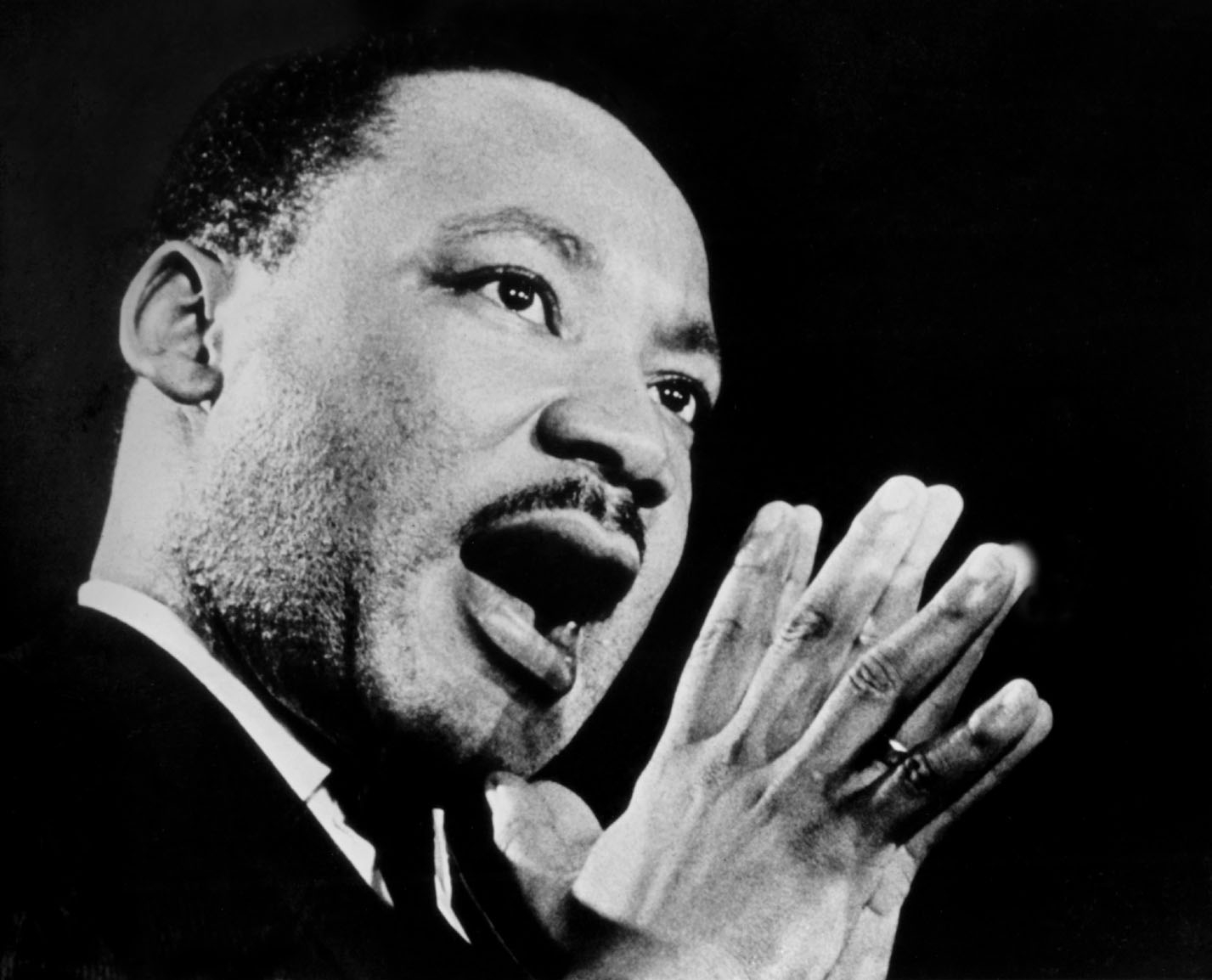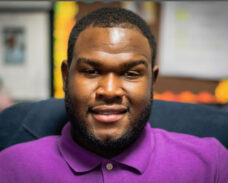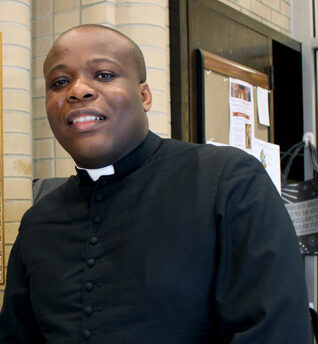
BEDFORD–STUYVESANT — Brooklynites in the winter of 1963 got a preview of one of history’s most iconic moments — the delivery several months later of the “I Have a Dream” speech by Dr. Martin Luther King Jr.
On Feb. 10, 1963, the civil rights leader visited the historic Plymouth Church in Brooklyn Heights, which, a century earlier, became a rallying center for the abolitionist movement and a stop on the Underground Railroad. Its first pastor, Rev. Henry Ward Beecher, was a prominent abolitionist and brother of Harriet Beecher Stowe, who wrote “Uncle Tom’s Cabin.”
Here, Dr. King delivered his speech, “The American Dream,” which some historians say is a precursor to “I Have a Dream,” delivered Aug. 28, 1963, before thousands gathered at the Lincoln Memorial and Washington, D.C.
“God is not interested merely in the freedom of black men and brown men and yellow men,” King told the audience packed inside Plymouth Church. “But God is interested in the freedom of a whole human race and the creation of a society where all men can live together as brothers, and every man will respect the dignity and the worth of human personality.”
That vision resonated powerfully for Father Alonzo Cox as he made preparations for this year’s annual prayer service honoring the late civil rights leader. The event is set for noon Jan. 18 at Our Lady of Victory Church, in Bedford-Stuyvesant.
“We’ve just had a year divided physically because of the pandemic,” Father Cox said. “In the midst of all that, we had racial tension over George Floyd and Breonna Taylor. And now there’s this election that still to this day, no one wants to say that they lost the battle, that it is over and it’s time to start anew.”

Father Cox is pastor of St. Martin de Porres Parish in Bedford-Stuyvesant, which includes the churches of Our Lady of Victory, Holy Rosary, and St. Peter Claver. He also is the coordinator of the African-American Apostolate in the Diocese of Brooklyn.
Social distancing protocols will allow about 125 people to attend the Jan. 18 prayer service, but extra chairs for another 25 will be available in the hall, Father Cox said.
The pastor said he usually invites a guest speaker to the prayer service, but this year he’ll deliver the homily instead because of pandemic travel concerns. He said he’ll emphasize Dr. King’s calls for unity.
“He marched with Catholics, Protestants, and even Muslims,” Father Cox said of Dr. King, a Baptist minister. “I have an image of him in my study, walking hand-in-hand with people of different colors and backgrounds, but with goals of unity and peace very much in mind.
“I hold that in my mind — a vision of hope.”
He noted an oft-quoted passage from the Lincoln Memorial speech in which Dr. King said, “I have a dream that my four little children will one day live in a nation where they will not be judged by the color of their skin but by the content of their character.”
Said Father Cox, “That means looking at each other, not particularly as white or black, but as children of God, created in the likeness and image of God.”
“That needs to be the first step.”
Another Way
Loving one’s neighbor is key to the lesson plans of Richard Green, an adjunct history professor at Medgar Evers College in Crown Heights.
Green holds a Bachelor of Arts (Cum Laude) from Marist College and a Master of Art in African History from the State University of New York at New Paltz.
“So now, Dr. King is very special to me in the work I do, right up to today,” Green said. “Every day, I go right into Dr. King’s philosophies.”
Aside from his admiration of Dr. King, Green said his academic research on him supports widely shared beliefs that he was among the greatest orators. Dr. King spoke with moral authority, laced with poetic eloquence. His molding of themes, from one speech to the next, showed his unique vision for a message, and how to finetune it.
“In fact, I thought he might’ve been the most powerful speakers of the 20th century,” Green said.
Green, who came to Brooklyn at age 9 from Honduras, was 15 when Dr. King visited Plymouth Church. He didn’t attend, but he did hear about it. Green was in the Marine Corps traveling to Vietnam when he learned about the assassination of Dr. King on April 4, 1968.
The tragedy inspired him to explore what Dr. King said about loving one’s neighbor, rejecting violence, civil disobedience, and seeking equality for all. After Vietnam, he resolved to work for peace. Green also manages the Crown Heights Youth Collective, an outreach program showing teens and young adults how to avoid violence.
But Green also noted that Dr. King humbly deferred to other historical figures like Mahatma Gandhi and Jesus Christ. Green said he tells students the story that appears in Luke 22:51 about how Jesus, during his arrest, restored the severed ear of a man who was attacked by a disciple.
“Dr. King gave us another way,” Green said. “He stood for Gandhi and Jesus, who were always about doing things to keep people from hurting someone.”
But while Dr. King was famous for civil disobedience and peaceful demonstrations, he did not condone “riot mode.” The professor made that comment on Jan. 6, while thousands of protestors loyal to President Trump stormed and occupied the U.S. Capitol.
Credit to Church and Country

Peter Damour, youth minister at St. Clare Parish in Queens, also serves on the Commission on Racism and Social Justice for the Diocese of Brooklyn. Bishop Nicholas DiMarzio formed the group in 2017 to address race issues within the Church.
Damour said Dr. King would surely be dismayed by the events of 2020. Therefore, he said, this year’s Martin Luther King Holiday will resonate.
“Certainly,” Damour said, “he’d be upset when we see the constant killing of unarmed black men at the hands of people we’re supposed to trust, but also in our community, the lack of respect for life with gun violence.
“As Catholics, we talk a lot about life in the womb and the tomb, but not necessarily the ‘in-between.’ I think Dr. King looked at the ‘in-between.’ At the end of the day, he recognized that God sees us as his children, which is at the core of Catholic teaching. I think that’s the major takeaway for Catholics and non-Catholics alike.”
Damour and Father Dwayne Davis of St. Thomas Aquinas Church both noted that not every headline in 2020 was ugly. They said all Catholics could celebrate that Wilton Gregory, the Archbishop of Washington, D.C. became the first-ever African-American cardinal.

“That definitely gives black Catholics in the U.S. great joy,” Father Davis said. “It opens doors of possibility to every boy in the Catholic Church, that they too can rise to that level of recognition.
“The church and country can take credit for that.”
The bad news often overshadows such progress, but Davis said it is a step toward Dr. King’s hopes for unity and equality.
At Plymouth Church and the Lincoln Memorial, Dr. King concluded by quoting the spiritual, “Free at Last,” calling for a day when “all of the chosen black men and white men, Jews, and gentiles, Protestants and Catholics, will be able to join hands and sing in the words of the old Negro spiritual, ‘Free at last, free at last, thank God almighty, we are free at last!’ ”

Beautiful! Powerful!
AMEN!